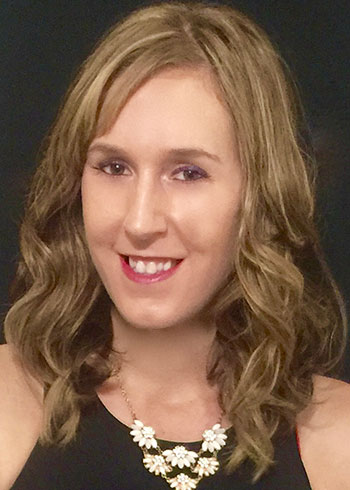- How did you learn about the program and what motivated you to enroll in the PHDA course(s) you chose?
-
I learned about the program from observing LinkedIn profiles of people working in health research, public health, and at health authorities. At the time, I only had some work experience somewhat related to health but no health degrees and was experiencing difficulty ‘getting my foot in the door’ without the latter. The University of Victoria and this program were not familiar to me aside from the LinkedIn exposure, since I was not familiar with the offerings on the West Coast.
- Tell us about your course experience. What skills did you develop and which courses provided the greatest benefit to you?
-
For online and greatly asynchronous courses, the course experiences were good, overall. The content, readings, and assignments/practice were very interesting. I look forward to referencing them and returning to them for refreshers. There are many optional resources I look forward to viewing.
However, it did feel like there was quite a lot of work in each course, from readings to forum posts to assignments. I was working full-time and was glad I only took one course at a time … since each semester was a lot of work! I am happy I chose a diverse set of courses, which were on topics I am very interested in. One course focussed on GIS skills, another on administrative data analysis skills, another focussed on epidemiological quantitative data analysis, and yet another included health program evaluation skills. These courses and their lessons were very memorable. While some specifics with SAS or ArcGIS will need to be refreshed the next time I work with them, overall principles, some common procedures, and where to find helpful guides were retained.
It is difficult to say which course provided the greatest benefit. Unfortunately, although mapping and spatial analysis are interests of mine, they are not usually relevant or appropriate for the full-time work I do. The administrative data, epidemiological statistics, and evaluation courses were great introductions to those disciplines and methods.
- How do you plan to apply your new skills in your work/research?
-
For my personal research and projects, I would like to use all the new skills I learned during this certificate. For my current job role, the evaluation course reinforced work planning, stakeholder engagement planning, and reporting planning skills -- their corresponding activities are prevalent at my job. The quantitative analysis and administrative data skills will be relevant to my professional and personal work.
- What do you think were the strengths of this program? Please provide examples.
-
The strengths of the program are the course offerings (which are attractive at first glance), the instructors, the practical work/applications, and the support/information network of peers. The work with PopData BC data was very engaging and a privilege – I hope that continues to be offered -- despite remote connections being a hassle sometimes.
The peer reviews were always very helpful and so were the activities/peer community in the course forums. I appreciated that one class only required a number of weekly posts for full participation grades. I personally found it daunting to participate through forum posts/responses, and usually dreaded writing mine addressing specific discussion questions.
- Would you recommend PHDA courses to others? If so, what recommendations/suggestions would you give those interested in completing these courses?
-
I would completely recommend this program to others. I have already recommended it to a close colleague who asked about it.
I would also strongly recommend it to someone who wishes to transition into epidemiology or public health-related professions before they pursue graduate level studies. These courses may offer the training they need.
I would suggest that they take only one PHDA course and devote all their educational time to that one course (i.e., no other courses from elsewhere). I would also recommend they try to keep up as much as possible with the pace of the courses and to really consider the timing of various milestones in the courses – as the courses vary in intensity at different points. If their course involves remote connections to analysis software and PopData BC data, they should expect to spend a lot of time practicing and completing those assignments.
- Are there any additional comments that you would like to add?
-
This is an incredible certificate program. It can be labour intensive and sometimes grueling/exhausting, but everything feels earned. I am amazed at how much I have learned and applied in only four courses (all on different and almost exclusive topics). Prior to this certificate, I thought I would need to pursue a degree in health to make a career transition. I feel confident that I have the necessary skills or at least the foundations for these skills -- and that pursuing another master’s or a committing to a PhD are not the only ways to acquire such skills.


